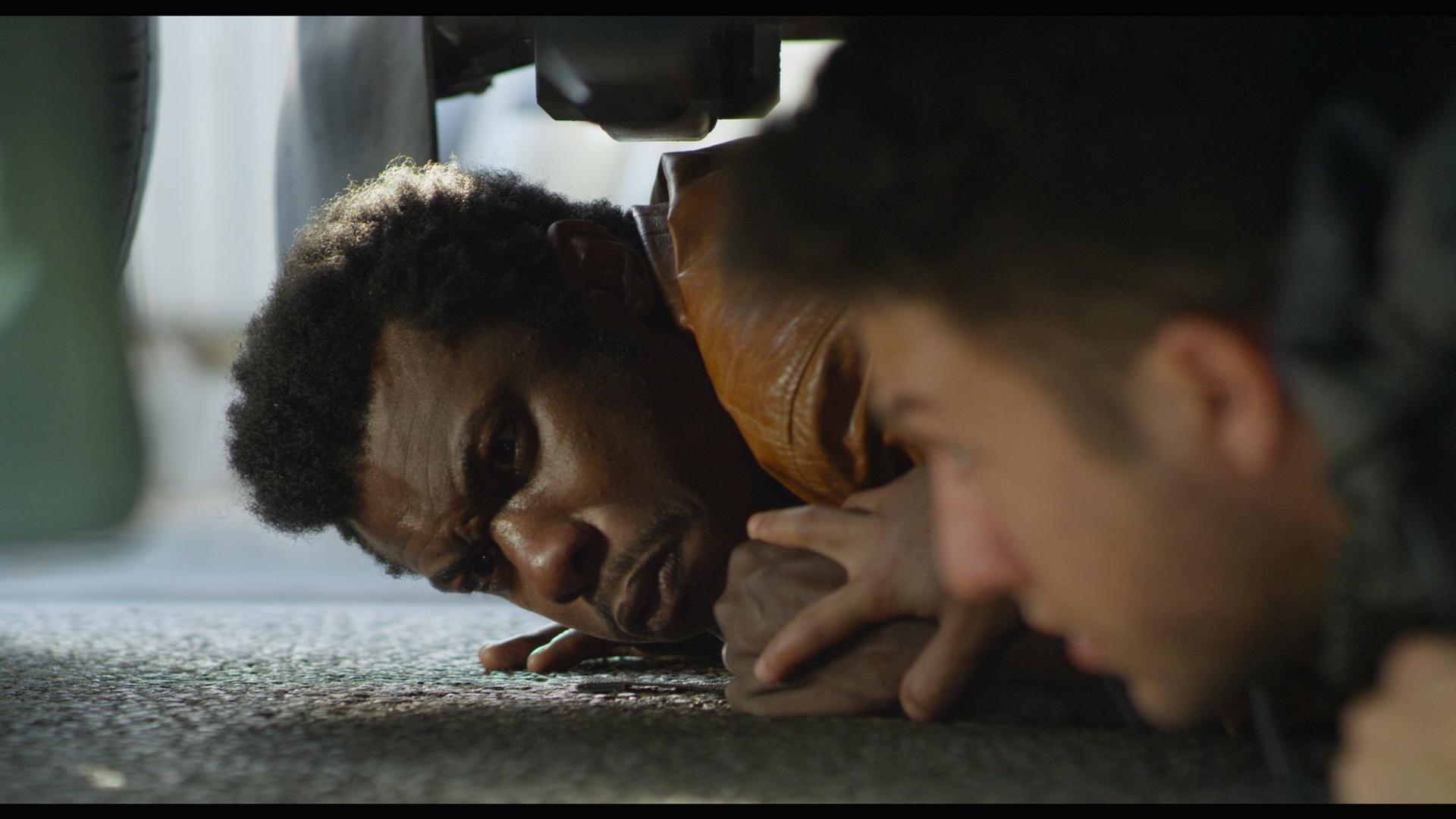
Director’s Note
Tazzeka is first and foremost a story about Elias, who dreams of new horizons
Tazzeka is a story about destiny. The film follows a classical arc, inspired by traditional coming- of-age narratives. It avoids a dark take on the subject and instead sees rays of hope for its hero. But even if the story ends happily, the film takes a realistic look at immigration and exile.
Tazzeka starts as a chronicle of a village, where simple daily rhythms outweigh dramatic narration. The film’s beginning takes its time sketching out this environment through the eyes of a child growing up in the early 2000s – a period otherwise known for tragic shipwrecks in the Strait of Gibraltar. Ten years later, Elias doesn’t let his brother’s death get in the way of his dreams to move to Paris and test his mettle in the land of gourmet food.
The project’s inception: country, place, and choice
Starting work on this project, I immediately turned to Morocco for personal and cultural reasons, deeply anchored in the Mediterranean. In winter 2011, I went to Morocco to scout locations and to work on writing. I already had specific ideas about the backdrop I wanted for the film. After a week of scouting, I came across a village in the Tazzeka valley. I knew the film had to start here and nowhere else. I didn’t want an urban setting and certainly didn’t want to shoot in Tangiers or Casablanca. I already knew that the film would sharply contrast the two worlds on either side of the Strait.
Beyond the fact that this culture spoke to me, I didn’t want the protagonist to have a dark past, as would be the case for Africans or Syrians fleeing poverty and war. A Francophone country like Morocco, which has never known armed conflicts, seemed ideal for addressing Western Dreams of Eden.
The film’s point of view: anchored in reality with a light tone
From the first day writing, I knew I wanted to navigate the threshold between drama and comedy. My work is always deeply immersed in reality: I need to observe, communicate, and collect testimonies. Tazzeka is no exception; I rooted my writing in a confrontation between reality and what would become fictional material. I collected a considerable amount of documents: literary works, stories, testimonies, and journalistic accounts on clandestine immigration, as well as recipes and cooking shows.
The film divides into two distinct parts that are linked by their simultaneously comedic and dramatic tone. Tazzeka engages with the humanity of a story about a young, talented man who, in spite of himself, gets caught in a spiral of clandestine immigration. He escapes thanks to his unique talent but also thanks to Souleymane’s friendship and support. In light of this, it’s important that the film end with hopes of success for our hero as he finds his place in society.
- Year2018
- Runtime95 minutes
- LanguageFrench, Arabic
- CountryMorocco, France
- DirectorJean-Philippe Gaud
- ScreenwriterJean-Philippe Gaud, Mariannick Bellot
- CastMahdi Belemlih, Ouidad Elma, Olivier Sitruk, Abbes Zahmani, Adama Diop
Director’s Note
Tazzeka is first and foremost a story about Elias, who dreams of new horizons
Tazzeka is a story about destiny. The film follows a classical arc, inspired by traditional coming- of-age narratives. It avoids a dark take on the subject and instead sees rays of hope for its hero. But even if the story ends happily, the film takes a realistic look at immigration and exile.
Tazzeka starts as a chronicle of a village, where simple daily rhythms outweigh dramatic narration. The film’s beginning takes its time sketching out this environment through the eyes of a child growing up in the early 2000s – a period otherwise known for tragic shipwrecks in the Strait of Gibraltar. Ten years later, Elias doesn’t let his brother’s death get in the way of his dreams to move to Paris and test his mettle in the land of gourmet food.
The project’s inception: country, place, and choice
Starting work on this project, I immediately turned to Morocco for personal and cultural reasons, deeply anchored in the Mediterranean. In winter 2011, I went to Morocco to scout locations and to work on writing. I already had specific ideas about the backdrop I wanted for the film. After a week of scouting, I came across a village in the Tazzeka valley. I knew the film had to start here and nowhere else. I didn’t want an urban setting and certainly didn’t want to shoot in Tangiers or Casablanca. I already knew that the film would sharply contrast the two worlds on either side of the Strait.
Beyond the fact that this culture spoke to me, I didn’t want the protagonist to have a dark past, as would be the case for Africans or Syrians fleeing poverty and war. A Francophone country like Morocco, which has never known armed conflicts, seemed ideal for addressing Western Dreams of Eden.
The film’s point of view: anchored in reality with a light tone
From the first day writing, I knew I wanted to navigate the threshold between drama and comedy. My work is always deeply immersed in reality: I need to observe, communicate, and collect testimonies. Tazzeka is no exception; I rooted my writing in a confrontation between reality and what would become fictional material. I collected a considerable amount of documents: literary works, stories, testimonies, and journalistic accounts on clandestine immigration, as well as recipes and cooking shows.
The film divides into two distinct parts that are linked by their simultaneously comedic and dramatic tone. Tazzeka engages with the humanity of a story about a young, talented man who, in spite of himself, gets caught in a spiral of clandestine immigration. He escapes thanks to his unique talent but also thanks to Souleymane’s friendship and support. In light of this, it’s important that the film end with hopes of success for our hero as he finds his place in society.
- Year2018
- Runtime95 minutes
- LanguageFrench, Arabic
- CountryMorocco, France
- DirectorJean-Philippe Gaud
- ScreenwriterJean-Philippe Gaud, Mariannick Bellot
- CastMahdi Belemlih, Ouidad Elma, Olivier Sitruk, Abbes Zahmani, Adama Diop
